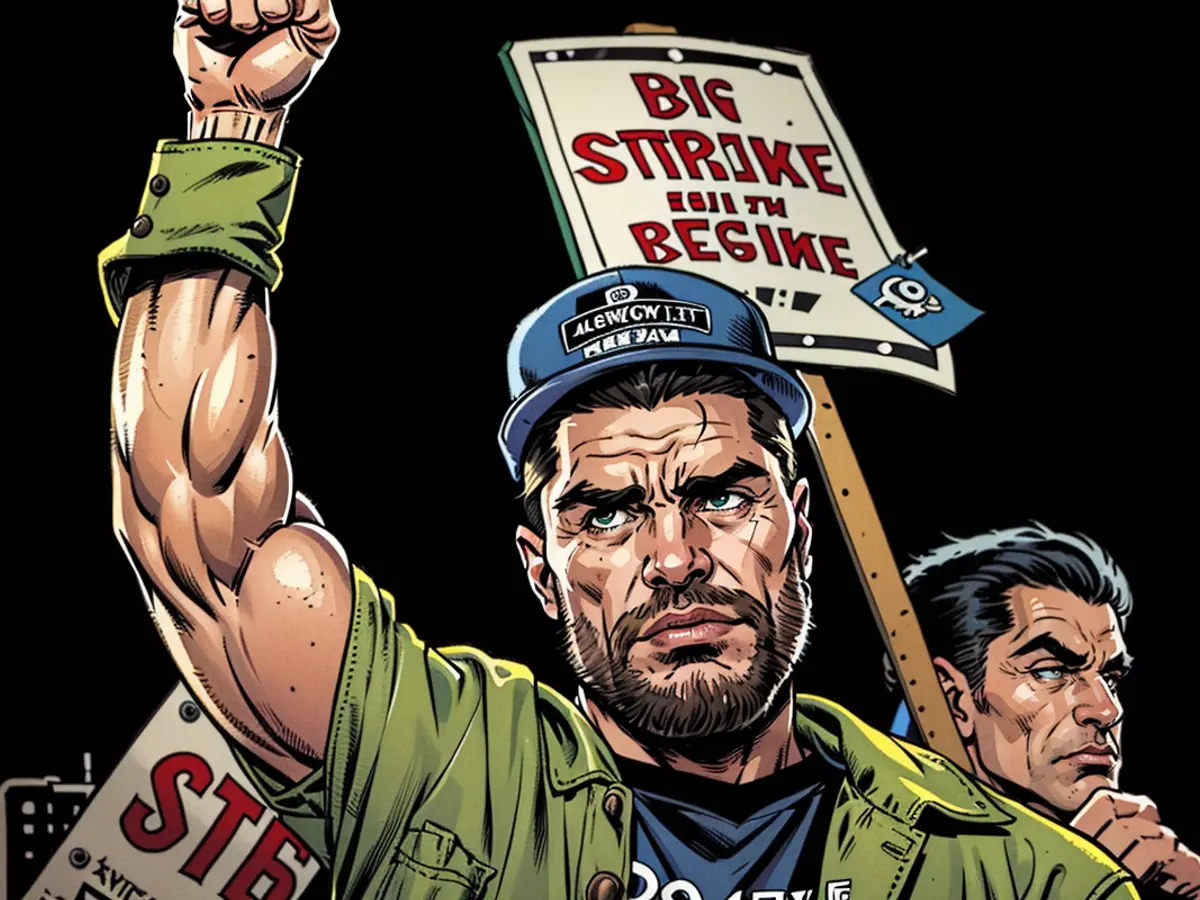Striking Boeing employees deepen the corporation's predicament
For the first time in over a decade, unionized workers at Boeing, the renowned airplane manufacturer, have decided to strike. This action is in response to a proposed 25% wage increase over a four-year period, which was turned down by an overwhelming majority of employees. The discontent revolves around various aspects of the new collective bargaining agreement. This strike could lead to additional billions in losses for the ailing company.
The primary union, IAM, representing around 33,000 employees responsible for producing popular models like the Boeing 737, among others, rejected the 25% salary increment offer by a margin exceeding 90%. Even after weeks of negotiations, the initial demand for a 40% increase was not met, leading to the rejection of the agreement in a Thursday vote by 94.6%. An impressive 96% of the workforce voted in favor of the strike, which commenced at midnight as announced by the union. Interestingly, the union had earlier endorsed the agreement. According to union representative Jon Holden, it remains uncertain if further gains can be made through striking.
Location commitments proved insufficient
The agreement included some improvements in healthcare expenses and retirement benefits, as well as a commitment from Boeing to manufacture new models in unionized facilities. This was a major demand of the union, following Boeing's establishment of a non-unionized plant in South Carolina around a decade ago to produce the 787 Dreamliner.
However, the agreement did not address concerns related to the elimination of performance-based bonus payments, the graduated salary increase over four years, and the fact that ten years had passed since the last salary hike. Many workers argue that the offered deal does not even compensate for the loss in purchasing power due to inflation.
Boeing is grappling with numerous challenges after a string of incidents, and is incurring losses. For instance, the Federal Aviation Administration has put a hold on expanding 737 production until Boeing improves its quality control measures. Criticism heightened further after an incident in January, where a 737-9 fuselage fragment detached during takeoff, allegedly due to missing fasteners. Boeing could not locate any records of the fuselage fragment installation.
Previous strike resulted in a significant financial setback
In an attempt to avert the strike, management and union leadership recently urged employees to accept the collective bargaining agreement. New Boeing CEO, Dave Calhoun, expressed concern that a strike would complicate their efforts to recover from the crisis. The head of the commercial aircraft division, Stan Deal, spoke about the company's enormous debt of over $60 billion and stated that they had made substantial progress.
The union last embarked on strike in 2008. This 57-day long strike reportedly cost the company approximately two billion dollars, based on estimates by analysts. Post-strike, employees agreed to zero wage increases or cuts, a factor contributing to their current demand for a substantial increase. A Boeing worker, in a conversation with the "Wall Street Journal", criticized the beginning salary in the new contract as comparable to that of a local fast-food chain offering $21 per hour.
Other unions within Boeing's industry are closely watching this dispute, as a successful strike could incentivize their own members to demand similar wage increases. The current strike also highlights the growing tension between manufacturing companies and their unionized workforces over wage stagnation and lost purchasing power due to inflation.








